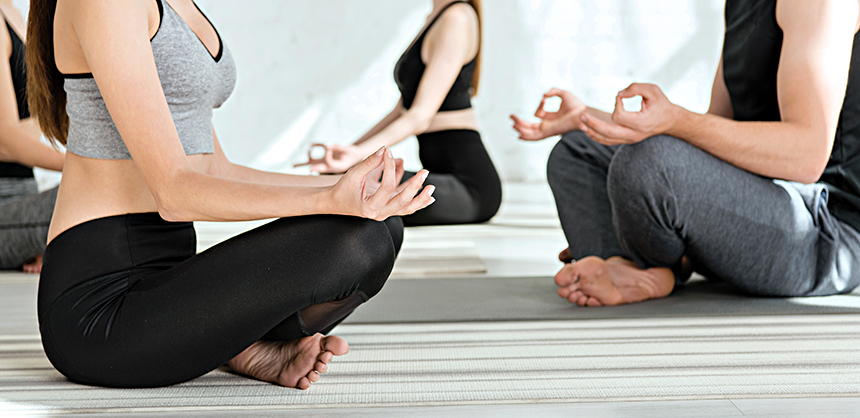9 Ways for Event Planners to Embrace Mental HealthMarch 4, 2020
Start by Eliminating as Much Stress as Possible... By Ashlee Mueller9 Ways for Event Planners to Embrace Mental Health
Start by Eliminating as Much Stress as Possible...
Event planning is consistently ranked as one of the top 10 most-stressful professions in the world, with an estimated 25% of event industry workers experiencing mental health issues. With statistics like this, it’s evident that achieving positive mental health in the event industry is no easy task. Between juggling last-minute changes and demands from clients and quickly approaching event deadlines every day, mental health and work-life balance can often become an afterthought.
I’m right there with you and, as a mother, I need just as much help developing a healthy work-life balance. From my experiences in the event industry, I’ve found the following to be helpful ways to care for my mental health and protect my work-life balance, both in event planning and in my everyday life:
1) Build mindfulness exercises into your events
Companies are increasingly realizing that providing employees with the necessary tools for a healthy work-life balance is one of the most important ways to reduce employee turnover. Industry conferences are taking note of this and incorporating mindfulness breaks into events, including yoga and breathing techniques. I’m glad to see as an industry we are making self-care and mental health a priority.
2) Get some fresh air
One of the best ways I’ve found to relieve stress is by stepping away and getting outside where you can breathe a little deeper. When the work piles up, it’s easy to sequester yourself inside, but getting outside not only calms my stress, it helps me put on a better event. Getting some literal outside perspective allows me to think through the big picture of the event, instead of getting lost in the details and last-minute changes.
3) Choose your venue wisely
I see event planners add unnecessary stress to their events all the time by choosing locations that add unnecessary work to their plates. If you’re able to choose your event location, pick one that will cut down on the amount of details you’ll need to handle. Try to choose an event site located just outside a large city, as opposed to in a downtown area. Focusing on walkable event venues and accommodations, and selecting a venue with free and ample parking, are small details that can be taken care of from the start by picking a stress-free venue.
4) Put your health first
A healthy body reflects a healthy mind. It’s easy to get so caught up in an event that you forget to take care of yourself, but the reality is this: To put on a good event, you must be healthy. Make regular exercise a priority and take breaks during an event day when you need them. Event planners spend most of event days on their feet, so make sure to take advantage of those small moments when you can sit and regroup.
5) Eat enough and eat well
It is important to be conscious of what you’re eating and when you’re eating. It’s easy to slide into convenience meals that are not high in nutrients and do not give you the healthy types of energy you need. Taking the time to eat — and eat healthfully — will do wonders for your well-being. For that matter, encourage the same behavior in your event attendees. Work with caterers on healthy menus and develop an event day schedule that gives both the mind and body a much-needed break.
6) Get high-quality sleep
There have been several studies connecting mental health issues with a lack of sleep. Whenever possible, get the recommended eight hours of sleep per night. However, many nights a solid eight hours is not an option. When this is the case, take steps to make sure that even if your quantity is low, that the quality of your sleep is high. Tactics such as no screens an hour before bed — or blue light blocking glasses if this is not an option — and relaxation techniques before bed can help you make the most of your sleep. While traveling, I always have lavender oil to put on my wrists and temples at bedtime.
7) Set clear priorities for the day
It’s easy to feel overwhelmed by all the needs of your clients and events. Often, getting bogged down by the flurry of incoming emails and demands that come your way is inevitable. Selecting 3 to 5 priorities for each day allows you to focus your efforts and your time. Best of all, it gives you a sense of real accomplishment at the end of the day — something that can help fuel you forward and prevent burnout.
8) Pursue clear communication
As the planner in charge of an event, you are serving as a conduit of information between the client, the venue, the vendors and anyone else involved in helping the event come together. One of the main tasks of this communication is to combine everyone’s ideas and input to achieve the event’s overall vision. If all relevant parties are on the same page from the beginning of the process, there is less likely to be breakdowns in communication and execution of tasks leading up to and during the event, which will contribute to an event that is as stress-free as possible.
9) Choose to be positive
It’s easy to place your focus on all the little things that didn’t go as planned during your planning process or the event itself. As you reflect on your event, choose to focus on the positive first, and then consider what changes you will make moving forward. Remember, your self-worth extends beyond how successful your event was. And when you’re thinking about what you would change, also remember that embracing what didn’t go as planned allows you the opportunity to grow in your craft.
In the midst of pre-planning stress, it is easy to lose sight of the end product of an event. This job is demanding, but when everything comes together, it’s extremely rewarding — and makes all of that stress worth it! Next time you plan an event, I encourage you to make your mental health and work-life balance a priority. When you are the best you can be, your event will be, too. | AC&F |
Ashlee Mueller











